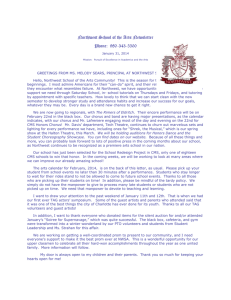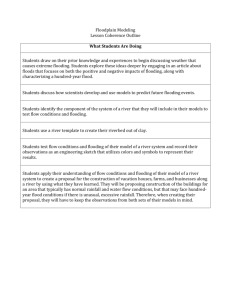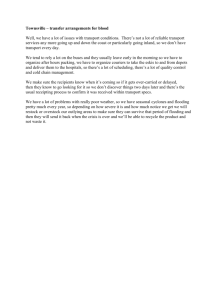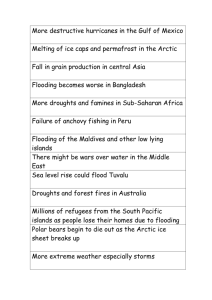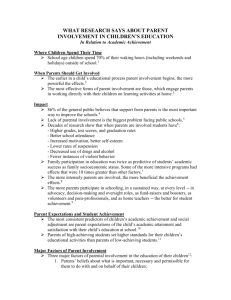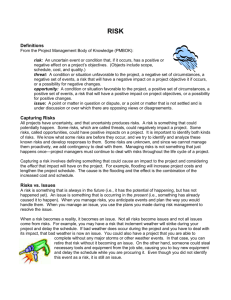Actions speak louder than words in the battle against
advertisement
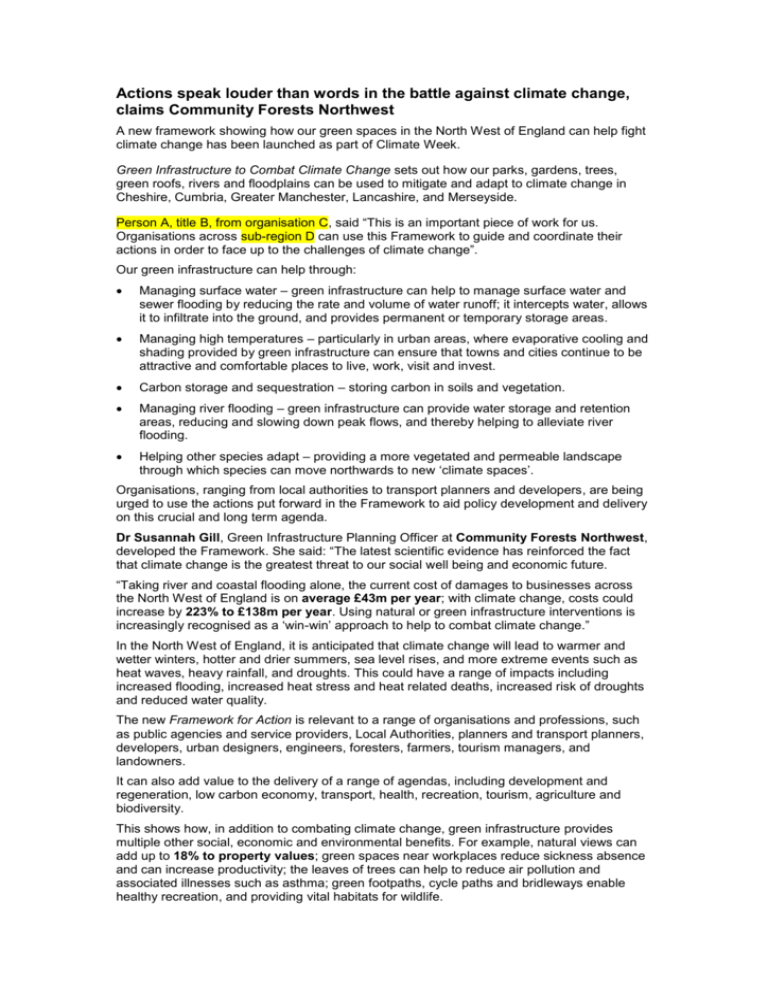
Actions speak louder than words in the battle against climate change, claims Community Forests Northwest A new framework showing how our green spaces in the North West of England can help fight climate change has been launched as part of Climate Week. Green Infrastructure to Combat Climate Change sets out how our parks, gardens, trees, green roofs, rivers and floodplains can be used to mitigate and adapt to climate change in Cheshire, Cumbria, Greater Manchester, Lancashire, and Merseyside. Person A, title B, from organisation C, said “This is an important piece of work for us. Organisations across sub-region D can use this Framework to guide and coordinate their actions in order to face up to the challenges of climate change”. Our green infrastructure can help through: Managing surface water – green infrastructure can help to manage surface water and sewer flooding by reducing the rate and volume of water runoff; it intercepts water, allows it to infiltrate into the ground, and provides permanent or temporary storage areas. Managing high temperatures – particularly in urban areas, where evaporative cooling and shading provided by green infrastructure can ensure that towns and cities continue to be attractive and comfortable places to live, work, visit and invest. Carbon storage and sequestration – storing carbon in soils and vegetation. Managing river flooding – green infrastructure can provide water storage and retention areas, reducing and slowing down peak flows, and thereby helping to alleviate river flooding. Helping other species adapt – providing a more vegetated and permeable landscape through which species can move northwards to new ‘climate spaces’. Organisations, ranging from local authorities to transport planners and developers, are being urged to use the actions put forward in the Framework to aid policy development and delivery on this crucial and long term agenda. Dr Susannah Gill, Green Infrastructure Planning Officer at Community Forests Northwest, developed the Framework. She said: “The latest scientific evidence has reinforced the fact that climate change is the greatest threat to our social well being and economic future. “Taking river and coastal flooding alone, the current cost of damages to businesses across the North West of England is on average £43m per year; with climate change, costs could increase by 223% to £138m per year. Using natural or green infrastructure interventions is increasingly recognised as a ‘win-win’ approach to help to combat climate change.” In the North West of England, it is anticipated that climate change will lead to warmer and wetter winters, hotter and drier summers, sea level rises, and more extreme events such as heat waves, heavy rainfall, and droughts. This could have a range of impacts including increased flooding, increased heat stress and heat related deaths, increased risk of droughts and reduced water quality. The new Framework for Action is relevant to a range of organisations and professions, such as public agencies and service providers, Local Authorities, planners and transport planners, developers, urban designers, engineers, foresters, farmers, tourism managers, and landowners. It can also add value to the delivery of a range of agendas, including development and regeneration, low carbon economy, transport, health, recreation, tourism, agriculture and biodiversity. This shows how, in addition to combating climate change, green infrastructure provides multiple other social, economic and environmental benefits. For example, natural views can add up to 18% to property values; green spaces near workplaces reduce sickness absence and can increase productivity; the leaves of trees can help to reduce air pollution and associated illnesses such as asthma; green footpaths, cycle paths and bridleways enable healthy recreation, and providing vital habitats for wildlife. Part of the North West Climate Change Action Plan, the Framework for Action was developed through wide consultation by Community Forests Northwest. It was commissioned by the Northwest Regional Development Agency (NWDA) on behalf of the Northwest Climate Change Partnership, and is supported through the EU Interreg IVC GRaBS (Green and Blue Space Adaptation for Urban Areas and Eco-Towns) project. Diane Smith, GRaBS Project Manager at the Town and Country Planning Association, said: “Planners have a crucial role to play in helping us to tackle climate change. This Framework provides new guidance to help them to make the most of green infrastructure in their areas and combat climate change”. Paul Nolan, on behalf of Community Forests Northwest, said: ‘The consultation on the Framework demonstrated that this agenda is of relevance across Cheshire, Cumbria, Greater Manchester, Lancashire and Merseyside. The challenge now is for us all to play a part in delivering the actions set out so that we are well positioned to face the challenges of climate change”. The Framework for Action is available at: www.ginw.co.uk/climatechange/framework. Further material of relevance is available at: www.ginw.co.uk/climatechange and www.grabseu.org. For all media enquiries, please contact Sophie Parkes at Creative Concern via sophie@creativeconcern.com or 0161 236 0600. ENDS Notes to editors 1. Green infrastructure has been defined in North West England as the region’s life support system – the network of natural environmental components and green and blue spaces that lie within and between our cities, towns and villages, and provide multiple social, economic and environmental benefits. (www.ginw.co.uk) 2. GRaBS is a network of leading pan-European organisations involved in integrating climate change adaptation into regional planning and development. The 14 project partners, drawn from eight EU Member States, represent a broad spectrum of authorities and climate change challenges, all with varying degrees of strategic policy and experience. For more information on the GRaBS project, please visit www.grabs-eu.org 3, Climate Week runs between 21st and 27th March 2011. Thousands of businesses, charities, schools, councils and others will run events during the week to demonstrate what can be achieved, share ideas and encourage thousands more to act during the rest of the year. For more information, please visit: http://www.climateweek.com/

